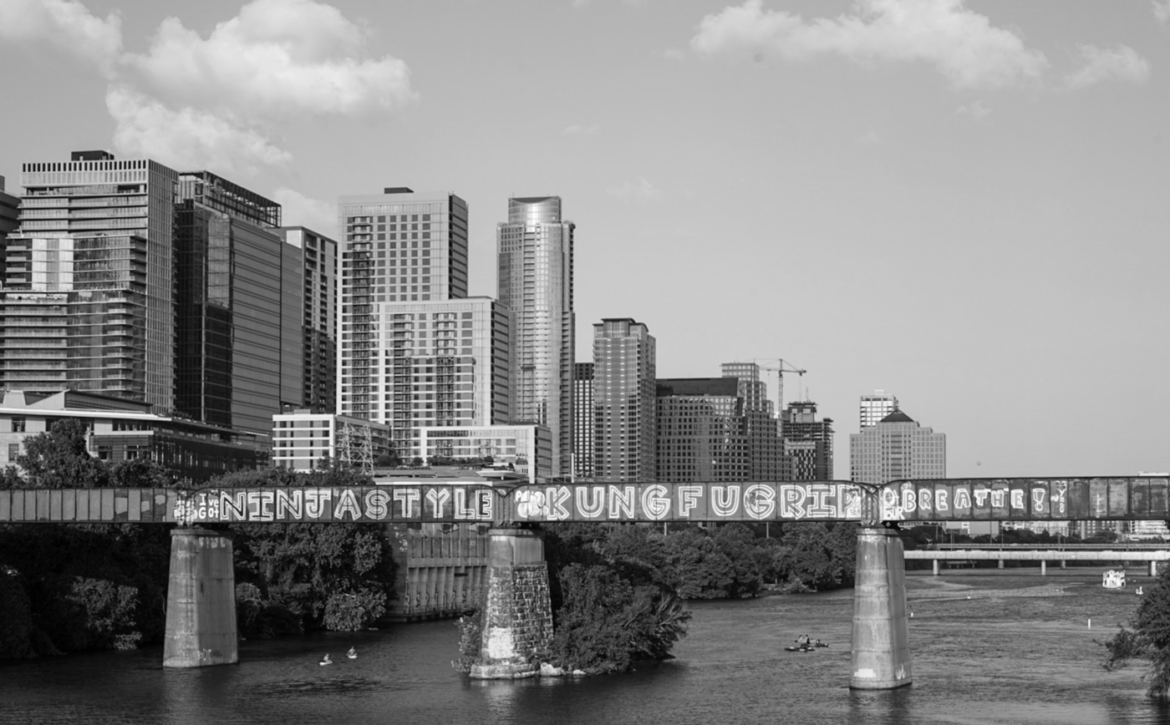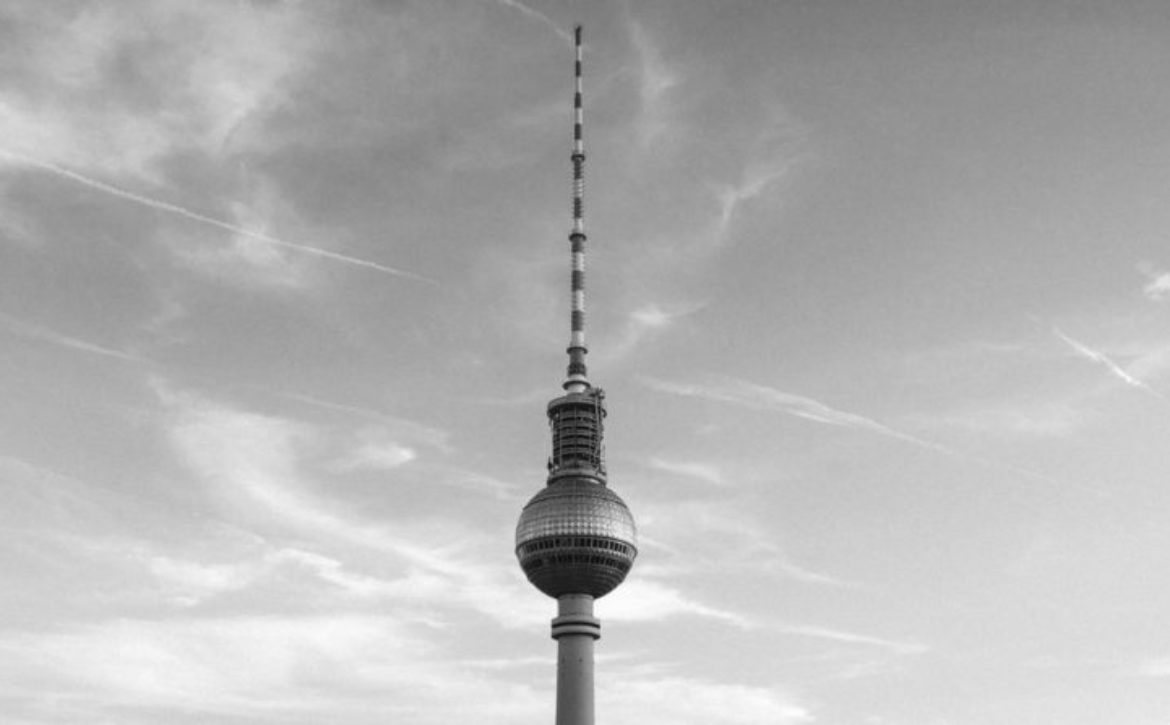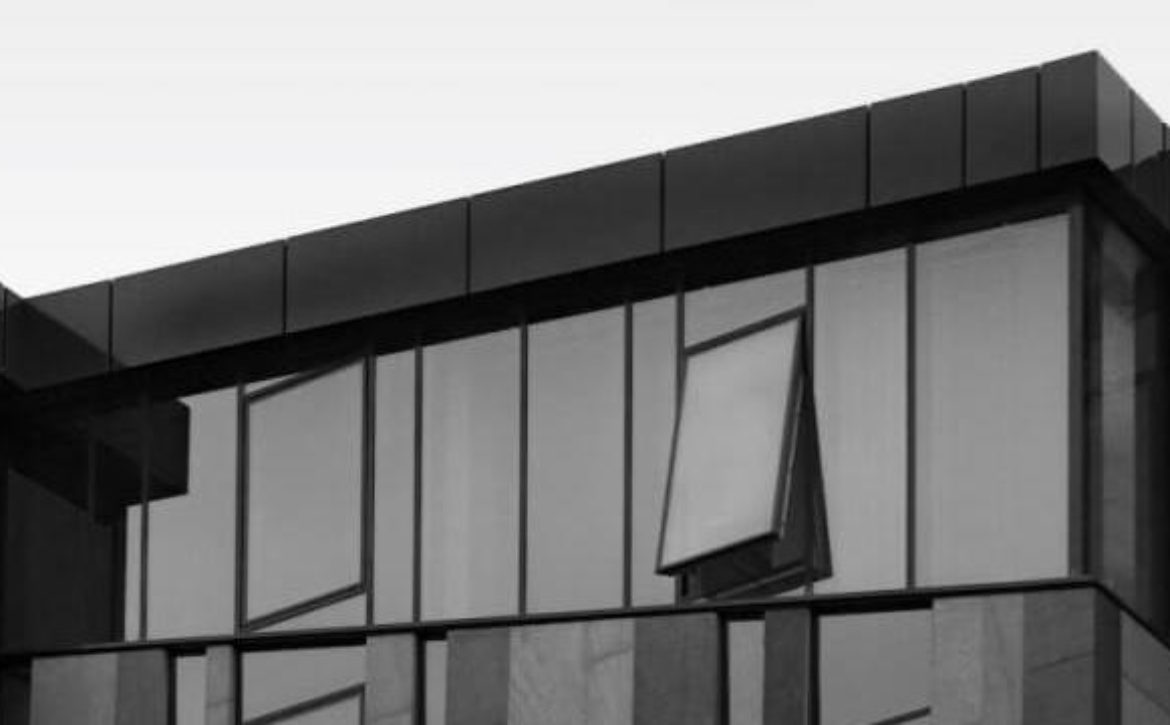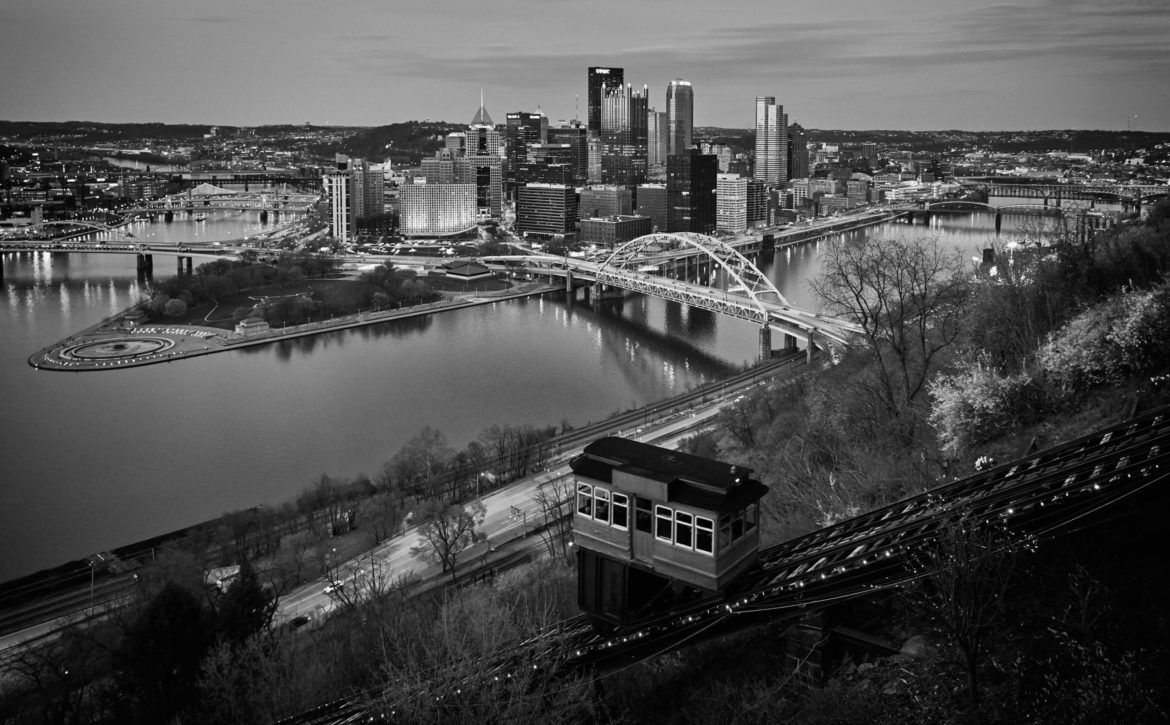Category: News
Invitation: Metro Diplomacy – Cities as Transatlantic Changemakers
On November 3, both presidential as well as General Election took place in the United States. How can their outcomes affect the global role of cities? Join us for a conversation about a new era of multilateralism from the bottom-up with Almut Möller, State Secretary of Hamburg and Stephen K. Benjamin, Mayor of Columbia, South Carolina.
For the past four years, transatlantic relations have found an emerging voice in cities. To facilitate the debate on the role of cities within this context, New Urban Progress is launching a paper that details overarching challenges as well as opportunities for urban environments in Germany and the United States. We look at how local governments are tackling common challenges: inclusive innovation and growth, climate change, immigration, racial disparities.
Creative metro leaders and partnerships have turned metros into laboratories of public innovation and responsive government. We want to encourage them to reach beyond national borders to compare notes with their peers in other countries. A new metro diplomacy would draw upon the deep traditions of German and U.S. federalism to engage city leaders in dialogues aimed at regenerating democracy from the ground up.
Join us for a panel discussion on Monday, 16 November 2020,
at 14.00 – 15.30 CET / 8.00 – 9.30 AM EDT
with
Almut Möller, State Secretary and Representative of the Free Hanseatic City of Hamburg to the Federal Government, the EU and for Foreign Affairs
and
Stephen K. Benjamin, Mayor of Columbia, South Carolina, Vice-President of the Global Parliament of Mayors & former President of the United States Conference of Mayors.
Registration closes on Friday, Nov. 13. 2020. For late registrations, please contact us at nup@progressives-zentrum.org
Fellow Focus: Victoria and Andrea
Our Fellow Focus this week features Victoria Boeck from the Technologiestiftung Berlin and Andrea Jonas from the German Federal Institute for Research on Building, Urban Affairs, and Spatial Development. Watch the video below to hear about the role they think cities can play in facing global challenges and implementing innovative ideas.
Each Monday until the end of the year, we will be showcasing two of our fellows from the United States and Germany with a short video. Find last week’s Fellow Focus about Friedrich Paulsen and Grace Levin here. To catch the other videos and learn about our fellows, follow this space here, or @AHG_Berlin, @DPZ_Berlin and @ppi on Twitter.
New Urban Progress is the joint metro initiative of Das Progressive Zentrum, Alfred Herrhausen Gesellschaft and the Progressive Policy Institute.
The project is supported by the Transatlantic Program of the Federal Republic of Germany and funded by the European Recovery Program (ERP) of the Federal Ministry of Economics and Energy (BMWi).


Fellow Focus: Grace and Friedrich
This week’s Fellow Focus introduces Grace Levin from the US and Friedrich Paulsen from Germany. Grace works as a community organizer in the city of Austin, Texas and Friedrich is the political representative for the German Saving Banks Association in Berlin. Hear why they think cities are important for transatlantic relationships and why that gives them hope.
Each Monday until the end of the year, we will be showcasing two of our fellows from the United States and Germany with a short video. Find last week’s Fellow Focus about Francesca Weber-Newth and Richard Lawrence Jr. here. To catch the other videos and learn about our fellows, follow this space here, or @AHG_Berlin, @DPZ_Berlin and @ppi on Twitter.
New Urban Progress is the joint metro initiative of Das Progressive Zentrum, Alfred Herrhausen Gesellschaft and the Progressive Policy Institute.
The project is supported by the Transatlantic Program of the Federal Republic of Germany and funded by the European Recovery Program (ERP) of the Federal Ministry of Economics and Energy (BMWi).


Fellow Focus: Francesca and Richard
The twenty New Urban Progress Fellows work on both sides of the Atlantic on a wide variety issues, from housing to the influence of climate change on cities.
This week’s ‘Fellow Focus’ is on Francesca Weber-Newth from the Tempelhof Projekt in Berlin and Richard Lawrence Jr., Principal Planner for the City of Alexandria, Virginia. In the video below, they introduce themselves and explain why they are passionate about cities and their role in transatlantic relations.
Each Monday until the end of the year, we will be showcasing two of our fellows from the United States and Germany with a short video. Follow this space here or @AHG_Berlin, @DPZ_Berlin and @ppi on Twitter to catch all ten videos and learn about our fellows.
New Urban Progress is the joint metro initiative of Das Progressive Zentrum, Alfred Herrhausen Gesellschaft and the Progressive Policy Institute.
The project is supported by the Transatlantic Program of the Federal Republic of Germany and funded by the European Recovery Program (ERP) of the Federal Ministry of Economics and Energy (BMWi).


Meet our New Urban Progress Fellows
We are excited to announce our twenty New Urban Progress Fellows! The cohort of next-generation leaders from Germany and the United States work on a broad range of issues, from climate change, to journalism, international relations, community organizing, financing and local business, data and tech, as well as city planning. From Berlin to San Francisco, the Fellows are engaging with some of the most pressing topics of our time. The New Urban Progress Fellowship will situate their work in urban contexts on both sides of the Atlantic and explore how cities can be actors that lead the way in building a more sustainable and equitable world.
The New Urban Progress Fellowship begins on October 1st. After our kick-off conferences with experts in urban public policy in the United States and Germany, this cohort of next generation leaders will dive deeper into the debate on how cities can not just be more democratic and innovative for its citizens – but also emerge as transatlantic actors. Centered around candid conversations on the toughest issues cities are facing, the Fellows will discuss and debate best policy practices in three thematic working groups. The results will be written up in three policy papers and presented at closing conferences.
Curious to learn more about how the project works and produces results? Learn more about the project here.
New Urban Progress is the joint metro initiative of Das Progressive Zentrum, Alfred Herrhausen Gesellschaft and the Progressive Policy Institute.
The project is supported by the Transatlantic Program of the Federal Republic of Germany and funded by the European Recovery Program (ERP) of the Federal Ministry of Economics and Energy (BMWi).


Cities For a Sustainable and Fair Future
In three workshop sessions with our distinguished guest speakers Wolfgang Teubner, Gesine Schwan and Cordelia Polinna, the participants of the Urban Forum discussed the role of cities in promoting civic participation, networked governance and the future of public space. Through this process, important challenges and solutions for shaping future cities were identified.
Engage Citizens in a Meaningful and Inclusive Way
The question of how to shape urban citizen participation was intensively discussed in all sessions. The city of the future should open up new spaces for participation and make use of innovative opportunities to engage citizens. Cordelia Polinna, who supports cities and local initiatives in cooperative planning processes with her company Urban Catalyst, presented examples of successful citizen participation. In Berlin, just over 200 people took part in the Bundesplatz initiative to redesign their neighbourhood.
In the subsequent discussion rounds with other urban development practitioners, factors for good participation processes were identified. Particular emphasis was placed on the fact that participation formats need to be inclusive. They should not only appeal to those who are interested in politics or who want to prevent a certain measure at all costs. Instead, diverse formats are needed that also reach other groups of citizens and, for example, meet different needs with a mixture of online and offline participation. When designing the formats, it is crucial to encourage constructive debate, for example by openly discussing specific topics instead of posing confrontational yes/no questions. Ultimately, the courage to try out new processes and to allow mistakes to be made was also promoted.
Networked Governance with Development Advisory Boards
Gesine Schwan presented the concept of development advisory boards at the Urban Forum: Advisory bodies, which are made up of representatives of civil society and bring new ideas into local politics. These should include not only NGOs and scientists but also the local companies and involve all important stakeholders. In the advisory councils, an open, trustful dialogue environment should be established, which promotes the development of common perspectives. However, the final decision-making power would always remain with the political representatives, who would benefit from the knowledge of civil society in their decisions. Gesine Schwan also argued for stronger international networks of cities, for example to exchange best practices but also to enable societal contacts independent of national politics. Such cooperation is particularly important in the USA under President Trump.
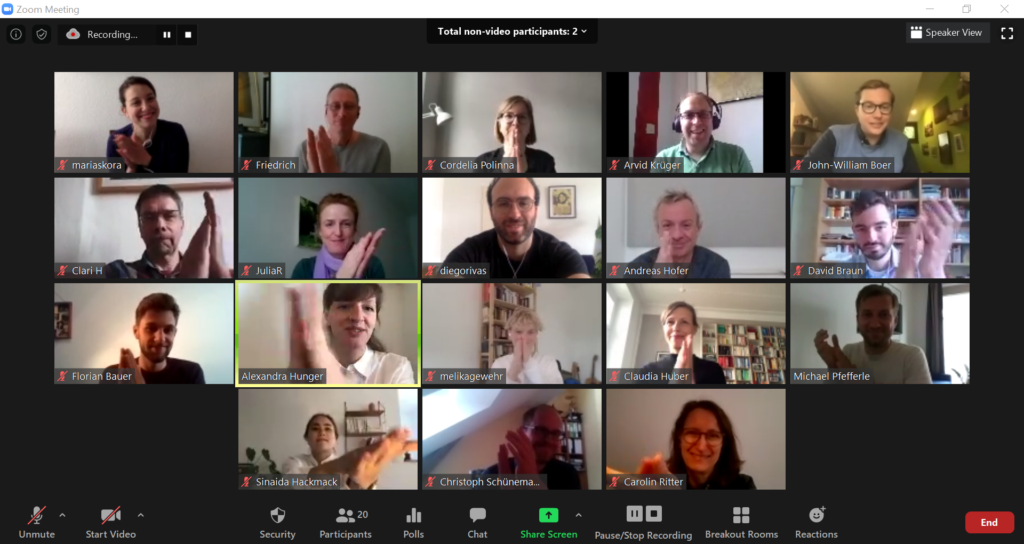
Local Action for Global Change
Cities need to develop ideas on how they can promote the necessary decarbonisation of the economy while maintaining quality of life, argued Wolfgang Teubner in his presentation. The Regional Director Europe for ICLEI, a network of local governments for sustainable development, also emphasised the potential of public-private partnerships to mobilise financial resources for investments in sustainability. During the discussion, participants stressed that new mobility and energy concepts can only be implemented through the cooperation of many stakeholders, with cities playing an important facilitating role. In addition, the aim of strengthening regional added value was emphasised in order to contribute to greater resilience and shorter transport routes. The surrounding area of cities should always be taken into account.
However, cities and municipalities can only play their central role in building sustainable economic structures if they have the financial resources to do so. The corona crisis will affect all municipalities, but to varying degrees, which is why targeted aid is indispensable. This is why Gesine Schwan suggested that EU aid from the planned recovery fund should also go directly to municipalities.
Let's Reclaim Public Space!
One core theme became particularly clear in the discussions: after decades of privatisation and focusing on the “car-friendly city”, it is time to rediscover and revive public spaces. There were several passionate pleas for a rethinking that would re-conceptualize public space as a common good and a space for encounters. One jointly developed priority was transport infrastructure, where the focus was to shift from the provision of parking spaces to the creation of cycling and pedestrian infrastructure. Spaces for culture, creativity and civic exchange should also be given greater public support. With rents continuing to rise, it was suggested that consideration be given to measures such as land value levies, which would allow the profits from land ownership to benefit the general public. The debate on design and use of public spaces will be central to the city of the future.
New Urban Progress Enters Next Phase
The results of the Urban Forum organised jointly by Alfred Herrhausen Gesellschaft and Das Progressive Zentrum will form the basis for further project design. A kick-off report will compare the topics discussed in Germany and the USA and draw initial conclusions. Project Fellows from both countries will then work on the core topics in working groups and will be able to deepen their knowledge during delegation trips to innovative German and American cities. As a result, policy papers will be produced to present the collected findings.
Powered by:


Call for Young Transatlantic Fellows with an Emphasis on Urban Public Policy
New Urban Progress is revitalizing transatlantic relations by sharing best practices on how urban areas can be innovative, networked, and fair. To do so, New Urban Progress (NUP) is looking for ten citizens from Germany and ten from the United States to be part of this transatlantic dialogue.

We now, more than ever, need to strengthen the transatlantic partnership. Help us do that by becoming a New Urban Progress Fellow! The twenty Project Fellows will be the main actors of this transatlantic dialogue on the future of cities. We are looking for a diverse group of Project Fellows who meet the following criteria:
- You are a researcher, journalist, academic, practitioner, a community organizer, start-up founder, metro-level problem solver or work in city administration
- You are a leader of tomorrow in local civic engagement and/or public policy
- You are a citizen of the United States or Germany under the age of 40
- You can commit to a two-year Fellowship that will include virtual work and road trips through the United States and Germany to visit and engage with innovative urban areas
- You have excellent command of the English language as well as strong communication skills, both written and oral
We are accepting applications from German and US citizens on a rolling basis until July 14 (updated deadline!). The New Urban Progress Fellowship will last from Fall 2020 to Summer 2022.
There is no financial compensation for the Project Fellows. However, New Urban Progress provides an excellent platform to showcase your work as a Fellow as well as integrates you in a large transnational network of actors in the field of urban public policy. Additionally, the week-long delegation trips through the United States and Germany in 2021 will be covered financially by New Urban Progress.
New Urban Progress is the joint metro initiative of Das Progressive Zentrum, Alfred Herrhausen Gesellschaft and the Progressive Policy Institute.
The project is supported by the Transatlantic Program of the Federal Republic of Germany and funded by the European Recovery Program (ERP) of the Federal Ministry of Economics and Energy (BMWi).


Urban Forum: Entwickeln Sie mit uns eine Vision für die Zukunft deutscher Städte!
New Urban Progress ist ein Projekt, das über drei Jahre hinweg in deutschen und US-amerikanischen Städten einen fruchtbaren Ideenaustausch zum Umgang mit lokalen Herausforderungen fördert. Wie können wir inklusive, vernetzte und faire Städte von Morgen erschaffen? Beteiligen Sie sich und bringen Sie Ihre Expertise und Ideen in unsere virtuellen Workshops ein!
Die Stadt als Labor. Metropolen sind Projektionsflächen gesellschaftlicher Phänomene und geben in den USA und Europa gleichermaßen immer häufiger den Ton in politischen Diskursen an – und dies nicht nur lokal, sondern auch national. In Städten werden die wachsenden Herausforderungen sozialer und technologischer Veränderungen besonders intensiv wahrgenommen. Gleichzeitig eröffnen Städte mit ihrer Vielzahl von Akteuren und in ihrer räumlichen Ausprägung neue Gestaltungsspielräume.
Das Projekt New Urban Progress bringt Menschen mit verschiedenen Hintergründen zusammen, um eine Plattform für eine progressive Politik in urbanen Räumen entstehen zu lassen. Wir wollen transatlantische Beziehungen neu denken und ein dynamisches Netzwerk aufbauen. Daher möchten wir im Austausch mit Ihnen die Aufgaben und Potentiale von deutschen Städten und Metropolregionen diskutieren, um diese schließlich im transatlantischen Vergleich verorten und mit unserem Netzwerk teilen zu können. Nehmen Sie an den Workshops unseres digitalen Urban Forums teil und bringen Sie Ihr Fachwissen und Ihre Erfahrungen mit ein!
Das Urban Forum wird am 18., 20., und 25. Mai per Videokonferenz stattfinden. Jede Sitzung des Forums wird sich tiefgreifend mit einem Thema beschäftigen: Ein Impulsvortrag, interaktive Arbeitsgruppen und eine moderierte Diskussionen bilden dafür den Rahmen.
18. Mai 2020, 10:30 – 12:30 Uhr
Städte sind und waren stets Motor ökonomischen Wachstums – bis zu 80% des Bruttoinlandsproduktes werden in Städten erarbeitet. Ökonomisches Wachstum führte jahrzehntelang für die Mehrheit der Bevölkerung zu steigender Kaufkraft und damit zu einem breiteren Wohlstand. Heute zeigt sich in Städten der Wandel von einer industriellen in eine wissensbasierte und nunmehr digitale Ökonomie besonders stark. Denn von Wachstum und dem Entstehen von profitablen digitalen Unternehmen profitiert der Arbeitsmarkt in Städten nicht unbedingt im gleichen Maß, wie andere Arbeitsplätze verschwinden. Auch Unternehmensstandorte transformieren sich stärker zu Netzwerkräumen. Die damit einhergehenden flexibleren Organisations- und Lebensformen benötigen eine entsprechende Rückkoppelung in der Stadt.
- Wie können Städte und Unternehmen Wachstum und Innovation fördern?
- Wie kann in Städten durch eine breite Integration in den Arbeitsmarkt ein nachhaltiges Wirtschaftswachstum gewährleistet werden?
- Durch welche Formen der Arbeit und des Unternehmertums können Städte in ihrer Nachhaltigkeit und Widerstandsfähigkeit gestärkt werden?
- Welche Rolle spielt der Staat hierbei?
20. Mai 2020, 10:30 – 12:30 Uhr
Vielfältige und nachhaltige Netzwerke können Städte bei der Bewältigung der Herausforderungen des 21. Jahrhunderts unterstützen. Potenziale bergen zum Beispiel die Einführung erneuerbarer Energien, die zunehmende Beteiligung der Städterinnen und Städter an demokratischen Prozessen sowie die Erweiterung von Bildungsmöglichkeiten für Menschen aller Altersgruppen und sozialer Herkünfte. Wachsende Ballungsgebiete brauchen aktive und engagierte Bürgerinnen und Bürger, um den ständigen Herausforderungen gerecht zu werden.
- Durch welche demokratischen Beteiligungsprozesse können Städte gerechter, effizienter und wirkungsvoller für Bürgerinnen und Bürger gestaltet werden?
- Wie können Bürgerinnen und Bürger an lokalen demokratischen Verfahren teilhaben?
- Welche Akteure prägen die gesellschaftlichen und ökonomischen Entwicklungen von Morgen und welche Formen des Austausches brauchen wir dafür?
25 Mai 2020, 10:30 – 12:30 Uhr
Die Stadt wandelt sich – darin liegen Herausforderungen, aber auch große Chancen. Aber wie genau kann eine Stadt von Morgen aussehen, in der die Lebensqualität für alle hoch ist und Klimabelastungen reduziert sind? Städte und Ballungsgebiete müssen Lösungen erarbeiten, um allen gesellschaftlichen Gruppen gleiche Chancen zu bieten und so die soziale Mobilität zu fördern. Diese kann durch einen fairen Ausbau energetischer und digitaler Infrastrukturen, durch gut zugängliche öffentliche Dienstleistungen, entsprechende Regelungen im Wohnungsbau und auch durch die inklusive Gestaltung von Mobilität unterstützt werden.
Welche Konzepte aus Wirtschaft, Politik und Gesellschaft können wir in urbanen Räumen anwenden, um:
- Chancengleichheit und soziale Mobilität in urbanen Räumen zu fördern?
- Den ökologischen Herausforderungen der Gegenwart und Zukunft zu begegnen?
Haben Sie Interesse mitzumachen?
Die Ergebnisse aus den digitalen Workshops dieses Forums werden, zusammen mit den Erkenntnissen aus der Parallelveranstaltung in Washington D.C., in die gemeinsame Arbeit unseres transatlantischen Netzwerks im Rahmen des New Urban Progress-Projekts einfließen.
Bewerbungsfrist ist der 10. Mai 2020. Die erfolgreichen Bewerberinnen und Bewerber werden individuell per Email informiert und erhalten alle technischen Details.

Das Projekt wurde durch das Transatlantik-Programm der Bundesrepublik Deutschland aus Mitteln des European Recovery Program (ERP) des Bundesministeriums für Wirtschaft und Energie (BMWi) gefördert.


Networked Cities for an Inclusive Tomorrow
Cities and metropolitan areas are currently protagonists in addressing climate change, energy transitions, rising xenophobia and increases in populism. However, how well they can lead these social transformations will depend on if their own communities are inclusive and equitable. Leading actors in urban policy discussed these challenges and more at the ‘Going Local: A Transatlantic Perspective’ conference earlier this month.
Concentration of Wealth and Geographical Inequality
The United States has just under four hundred metropolitan areas, however wealth and innovation is primarily concentrated in only several metro areas around the country. Sitting on a panel, Bruce Katz (The New Localism) articulated that since the financialisation of the economy in the 1980s, cities across the United States have sent their wealth away to California, New York and Massachusetts.
This concentration of wealth has resulted in an agglomeration of innovation and geographic inequality. The trend of losing local resources and wealth makes it difficult to build cities across the country that can support opportunities for all its inhabitants.
“We need to talk about data driven analysis to shift trillions of dollars of capital back into the heartland” – Bruce Katz
Which Metrics Can Determine a City's Success?
During interactive sessions, urban policy experts and mayors debated how to determine a successful city. Amy Liu from the Brookings Institution argued that using job creation as a metric is not sufficient. A more nuanced analysis is needed that takes into account if a city has jobs available for a range of workers, and if those jobs pay living wages or provide benefits. Another worrisome employment trend for participants is the increase of contract jobs, which often do not provide sufficient job security.
This conference was part of the transatlantic dialogue series New Urban Progress, which aims to strengthen transatlantic relations through exchanges on the future of cities and metropolitan areas.
Mayors Fighting for Equitable Cities
The panel of mayors advocated for increasing access to trade and certificate programs in order to benefit a wide range of members in their communities. Concrete policies such as universal pre-school and policies that allow women to work were repeated by several of the mayors. Many were concerned on how to guarantee that new policy and developments would benefit long-term local residents and citizens without a four-year degree.
How compassionate can your city be? – Mayor Levar Stoney of Richmond, Virginia
Mayor Bill Peduto of Pittsburgh detailed his “Four P” metric that the city uses before giving out grants. Each grant must include details on the people, plan, place, and performance. All four elements need to be included in the grant application to ensure that the project is in the interest of the city and its inhabitants as a whole. The mayors were optimistic that they can lead cities to a more fair future.
“Cities are small and you can get things done. Implementing comes down to who are the critical partners to help target the audience.” – Mayor Bill Peduto

Cities Are Networks
The experts and mayors discussed the various sectors and actors that together can comprise and how cities are best understood as networks.
Evan Absher of the Kauffman Foundation advocated for networks over a one-size-fits-all model: “We need to be thinking on a Facebook scale, not a Walmart scale”. Many participants stated that cities running under networked governance models are able to initiate and finance necessary innovations. They highlighted that good partnerships are at the core of city networks.
About the Event: "Going Local: A Transatlantic Perspective"
Das Progressive Zentrum, along with the Progressive Policy Institute, and the Alfred Herrhausen Gesellschaft organised the conference “Going Local: A Transatlantic Perspective” in Washington D.C., on Tuesday March 10th, as part of the exploratory phase of their project New Urban Progress.
The mayors of Rochester, Richmond, Pittsburgh, the Deputy Chief of Staff to the mayor of Denver, along with urban policy experts Bruce Katz and Amy Liu contributed to the event. The goal of the conference was to debate and identify pressing challenges and solutions to creating equitable cities across the United States. A mirroring event will take place in Germany later in 2020. The results of the two conferences will serve as a comparative foundation for the transatlantic dialogue project New Urban Progress.
New Urban Progress is a transatlantic dialogue on the future of cities and metropolitan areas. The project brings actors from both sides of the Atlantic together to work on making urban areas more networked, innovative and fair. As part of its exploratory phase, New Urban Progress is examining the main challenges for urban areas in the United States and Germany. These results will then serve as the foundation for the project’s dialogue between its fellows.
The project is supported by the Transatlantic Program of the Federal Republic of Germany and funded by the European Recovery Program (ERP) of the Federal Ministry of Economics and Energy (BMWi).
Powered by:






